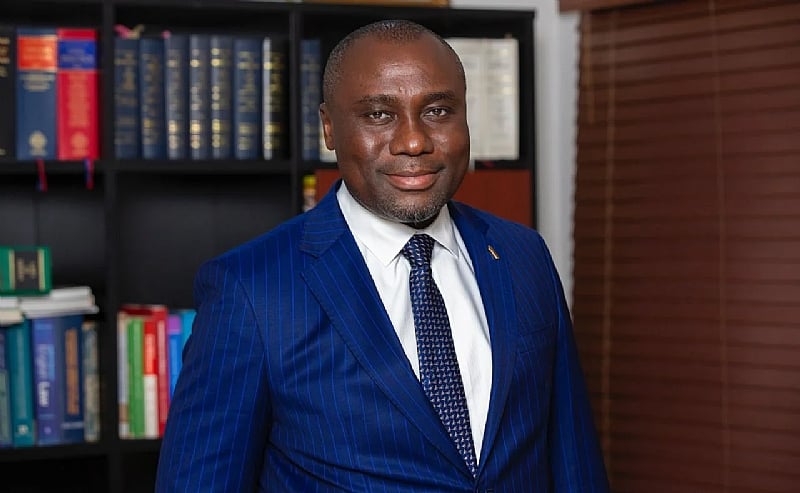The internal dissent within the New Patriotic Party (NPP) regarding their handling of the Special Prosecutor’s declaration of Ken Ofori-Atta, the former Finance Minister, as a wanted fugitive has been brought to light by Gary Nimako, the Director of Legal Affairs for the NPP. Nimako has publicly criticized the party’s decision to hold a press conference in response to the declaration, arguing that it was premature and ill-advised. He contends that the party’s reaction lacked the necessary due diligence and consultation, particularly with legal counsel, which could have led to a more measured and strategically sound response.
Nimako’s primary concern revolves around the timing of the press conference. He points to the dates on the official correspondence related to the case, suggesting that the NPP’s reaction was too hasty given the limited time they had to fully grasp the complexities of the situation. He acknowledges that Justin Kodua Frimpong, the NPP’s General Secretary, also known as Nana B, is a lawyer and may have acted based on his own legal understanding of the available information. However, Nimako emphasizes the importance of broader consultation, especially within the legal department, to ensure a unified and well-informed party stance. He explicitly states that had he been consulted, he would have counselled against the press conference.
Central to Nimako’s critique is the sensitive nature of the case against Ofori-Atta. He argues that the situation demands a cautious and deliberate approach, allowing for a thorough investigation before drawing conclusions or making public pronouncements. He believes that rushing to defend Ofori-Atta without a full understanding of the Special Prosecutor’s evidence could potentially undermine the party’s credibility and jeopardize the integrity of the legal process. Nimako advocates for a more measured response, prioritizing engagement with all involved parties and a comprehensive analysis of the situation before taking any public stance.
Nimako’s proposed alternative approach emphasizes a strategy of careful consideration and collaboration. He suggests that the party should have delayed the press conference, using the time to conduct further investigations, consult with legal experts both within and outside the party, and engage in dialogue with the Special Prosecutor’s office to clarify the basis of the accusations against Ofori-Atta. This approach, he believes, would have allowed the NPP to develop a more informed and nuanced understanding of the situation, leading to a more effective and less reactive response.
Further elaborating on his preferred course of action, Nimako emphasizes the importance of de-escalation and a focus on due process. He advocates for a less confrontational approach, avoiding the dramatic public exchanges that characterized the NPP’s initial response. Instead, he proposes a strategy of quiet diplomacy and behind-the-scenes engagement with the relevant authorities. This approach, he argues, would have demonstrated the party’s respect for the legal process while simultaneously protecting its own interests and reputation. He believes that a measured and respectful approach would have been more effective in achieving a positive outcome for Ofori-Atta and the party.
In essence, Gary Nimako’s criticism highlights a potential internal disconnect within the NPP regarding their crisis management strategy. His dissent underscores the importance of thorough internal consultation, particularly on sensitive legal matters, to ensure a unified and strategically sound response. He advocates for a more measured and deliberate approach prioritizing investigation, due process, and respectful engagement over hasty public pronouncements and confrontational tactics. Nimako’s critique provides valuable insight into the internal dynamics of the NPP and the challenges it faces in navigating complex legal and political landscapes. His call for greater caution and deliberation serves as a reminder of the importance of strategic communication and the potential consequences of reactive decision-making in the political arena.














